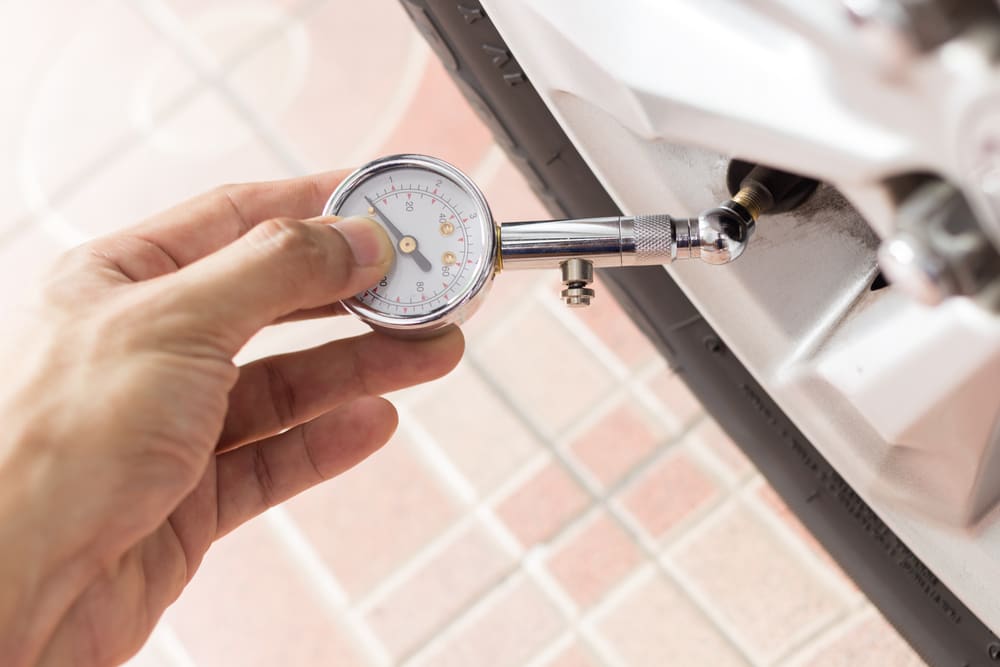

The tire pressure gauge is a sensor that reads the tire pressure of all four tires of a vehicle. Modern vehicles have a Tire Pressure Monitoring System (TPMS) built in. Starting in 2007, the TPMS has to report an under-inflation of 25 percent in any combination of all four tires.
Tire Pressure Light
The Low Tire Pressure Light is illuminated once the TPMS reads a pressure lower than 25 percent of the manufacturer’s recommended pressure. The light is indicated by an exclamation point surrounding by a “U” shape. If this light comes on in your vehicle, it means your tire pressure is low. You should find the nearest gas station to fill up your tires.
What to Do If the Tire Pressure Light Comes On
If the TPMS Light comes on, check the pressure on all four tires. It may be one or a couple tires that need air. It is a good habit to check all tires to make sure they are filled to the manufacturer’s standards. Furthermore, if the gas station gauge is reading the tire pressure is normal, you may have a problem with your TPMS.
Indirect vs. Direct TPMS
The indirect TPMS uses the antilock braking system’s wheel speed sensor to determine if one tire is rotating faster than the others. Since an underinflated tire has a smaller circumference, it has to roll faster to keep up with the tires that are inflated normally. The margin of error of the indirect system is large. The direct TPMS measures the tire’s actual pressure and are accurate within one psi. These gauges are mounted to the tire valve or the wheel. Once it measures the pressure it sends the signal to the vehicle’s computer.
Dangers of Under-Inflated Tires
Under-inflated tires are the leading cause of tire failure. Driving on under-inflated tires can cause blowouts, tread separation, and premature wear. Blowouts can put the vehicle, passengers, and others on the road in harm’s way because of the debris and potential to lose control of the vehicle. According to the National Highway Traffic Safety Administration, thousands of injuries can be prevented every year if people would inflate their tires to the right pressure.
The tire pressure gauge will light up if your tires are under-inflated. Driving on under-inflated tires is dangerous, so it is important to fill them up with air right away.



